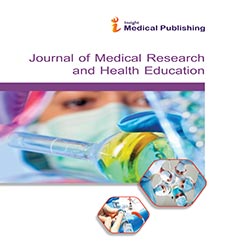Aggression prevention and management strategies in mental health careâ??a way to enhance mental health worldwide
Assistant Professor, SGT University, India
Abstract
Aggression is one way individuals express anger. It is a behavior intended to threaten or injure the victim’s security or self- esteem. It means ‘to go against’; ‘to assault’ or ‘to attack’. It is a response which aims at inflicting pain or injury on objects or persons. People who enter the health care system are often in great distress and may exhibit maladaptive coping responses. Psychiatric nurses are at risk for violence as they work with patients who have inadequate coping mechanisms for dealing with stress. Nurses who work in settings such as emergency departments, critical care areas, and trauma centers often care for people who respond to events with angry and aggressive behavior that can pose a significant risk to themselves, other patients and health care providers. Psychiatric nurses also are at risk for violence as they work with patients who have inadequate coping mechanisms for dealing with stress.
Explicit training on effective and safe handling of aggressive behavior is important for frontline workers, such as nurses, nurse assistants and community health workers who have the most direct contact with people living with mental health disorders. Health professionals in primary care also see people with psychosis, dementia, drug and alcohol dependence and other conditions that can lead to aggression which can have a detrimental effect on their physical, psychological, emotional and spiritual well-being. Nursing staff members on psychiatric units are likely to be involved in preventing and managing aggressive behavior and are at risk for being victims of aggressive acts by patients. Thus, preventing and managing aggressive behavior are important skills for all nurses.
The nurse can implement a variety of interventions to prevent and manage aggressive behavior.

Biography
Sonia is an Assistant Professor in SGT Universit. Her qualification is M.Sc. Nursing(Mental Health Nursing). Her total year of experience is 07 years 4 months. Her Teaching interest is promotion of Mental Health and hygiene. Her research expertise is psychopharmacological drug compliance among psychiatric patients.
Publications
1. Effectiveness of planned teaching Programme on Alcoholism among the adolescents
2. Knowledge and attitude regarding Sex Education.International Journal of Neurosurgery & Psychiatry.
3. Assessing the knowledge and attitude of family members of psychotic patients regarding Drug compliance.
4. How Much do we Really Know About This Perceptual Disorder?
5. Aggression Prevention and Management Strategies in Mental health care ‘A way to enhance Mental health worldwide.
Open Access Journals
- Aquaculture & Veterinary Science
- Chemistry & Chemical Sciences
- Clinical Sciences
- Engineering
- General Science
- Genetics & Molecular Biology
- Health Care & Nursing
- Immunology & Microbiology
- Materials Science
- Mathematics & Physics
- Medical Sciences
- Neurology & Psychiatry
- Oncology & Cancer Science
- Pharmaceutical Sciences
